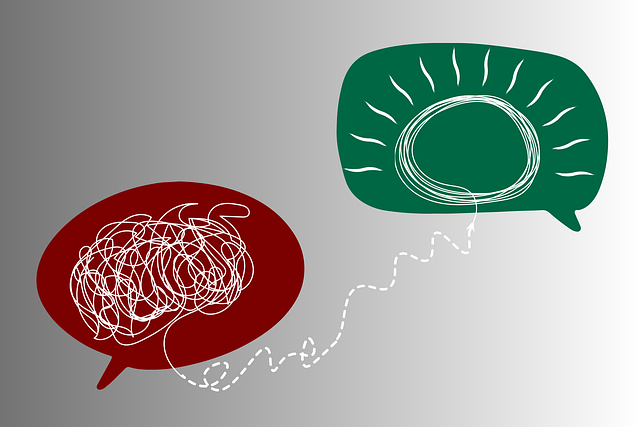Westminster Relationship Issues Therapy (WRIT) emphasizes cultural sensitivity as a key factor for successful mental health care. Therapists must respect and embrace diverse backgrounds, values, and beliefs to create inclusive environments where patients feel understood. By combining self-awareness exercises, active listening, and culture-specific stress reduction methods, WRIT builds strong connections with clients from varied cultures, enhancing therapeutic outcomes. This approach addresses the unique mental health experiences shaped by cultural contexts, reduces stigma, and ensures tailored support for all individuals seeking help in a multicultural society.
Cultural sensitivity is an indispensable aspect of modern mental healthcare, shaping the way therapists approach diverse client populations. This article explores the intricate relationship between culture and mental health, highlighting why a culturally responsive practice is vital. We delve into the specific challenges faced by individuals from various cultural backgrounds in therapy and present a case study on Westminster Relationship Issues Therapy, showcasing its successful integration of cultural considerations. Additionally, practical strategies are offered for healthcare professionals to enhance their cultural sensitivity in clinical settings.
- Understanding Cultural Sensitivity in Mental Healthcare
- The Impact of Cultural Background on Mental Health and Therapy
- Westminster Relationship Issues Therapy: A Culturally Responsive Approach
- Strategies for Practicing Cultural Sensitivity in Clinical Settings
Understanding Cultural Sensitivity in Mental Healthcare

In the realm of mental healthcare, cultural sensitivity is a cornerstone of effective therapy. It involves recognizing and respecting the diverse beliefs, values, and practices that shape individuals’ lives, including those with relationship issues in Westminster. Understanding that every patient comes from a unique cultural background, therapists must adapt their approaches to ensure inclusivity and avoid perpetuating stereotypes or biases. This awareness fosters a safe space where patients feel understood and empowered to share their experiences openly.
Cultural sensitivity is not just about knowledge; it’s also about cultivating empathy and self-awareness among mental health professionals. Engaging in regular Self-Awareness Exercises can help therapists recognize their own cultural assumptions and biases, which are often unconsciously influenced by societal norms. By integrating Communication Strategies that value active listening and clear interpretation of non-verbal cues, therapists can build stronger connections with patients from diverse backgrounds. Moreover, promoting Stress Reduction Methods tailored to different cultures can enhance therapeutic outcomes, ensuring that mental healthcare remains accessible and beneficial for everyone seeking support, including those dealing with relationship challenges in Westminster.
The Impact of Cultural Background on Mental Health and Therapy

One’s cultural background significantly shapes their mental health experiences and perspectives. The concept of mental illness itself varies across cultures, influencing how individuals understand and express their internal struggles. For instance, certain communities may prioritize spiritual or familial dynamics in coping with trauma, while others seek more individualized solutions through Westminster Relationship Issues Therapy. This cultural lens extends to the very definition of what constitutes a “mental illness,” with diverse societies holding unique beliefs about causation, symptoms, and appropriate treatments.
Understanding these cultural nuances is paramount for mental health professionals aiming for effective care. Without acknowledging the impact of cultural background, therapists run the risk of misinterpreting clients’ concerns or applying universal strategies that may not resonate with their specific needs. Mental Illness Stigma Reduction Efforts can benefit greatly from incorporating culturally sensitive practices, ensuring that everyone, regardless of their cultural heritage, receives support tailored to their unique context and beliefs, ultimately enhancing outcomes like Anxiety Relief and fostering improved Mental Wellness.
Westminster Relationship Issues Therapy: A Culturally Responsive Approach

Westminster Relationship Issues Therapy (WRIT) offers a culturally responsive approach to addressing relationship challenges, emphasizing the importance of understanding and respecting diverse cultural backgrounds. This therapeutic framework recognizes that emotional healing processes are deeply influenced by cultural context, traditions, and values. By incorporating WRIT, mental healthcare practitioners can create a safe and inclusive environment, fostering effective communication strategies and social skills training tailored to each client’s unique cultural identity.
The approach promotes culturally sensitive practices, ensuring therapists adapt their techniques to avoid potential biases or misunderstandings. This customization enhances the therapeutic alliance, encouraging clients to openly discuss personal matters. WRIT facilitates a deeper exploration of relationship dynamics, considering cultural nuances in non-verbal communication, conflict resolution, and emotional expression. As a result, individuals engage in meaningful therapy sessions, benefiting from personalized support that resonates with their cultural roots.
Strategies for Practicing Cultural Sensitivity in Clinical Settings

In clinical settings, practicing cultural sensitivity is paramount to delivering effective mental healthcare. One key strategy involves actively listening to and understanding patients’ unique cultural backgrounds, values, and beliefs, which can significantly shape their perceptions of mental illness and treatment preferences. This approach fosters a safe and non-judgmental environment, encouraging open communication and building trust. For instance, therapists at Westminster Relationship Issues Therapy have been trained to ask respectful questions about clients’ cultural practices, religious observances, and family dynamics, allowing them to tailor interventions that resonate with individual patients.
Additionally, integrating crisis intervention guidance tailored to diverse cultural contexts can be life-saving. Recognizing the impact of cultural factors on distress and coping mechanisms is crucial for recognizing early signs of a mental health crisis. Mental illness stigma reduction efforts, often culturally specific, can also facilitate earlier help-seeking behaviors. By incorporating these strategies, Westminster Relationship Issues Therapy ensures that each client receives care that respects their identity, promotes healing, and improves outcomes, ultimately enhancing the effectiveness of mental healthcare services in a multicultural society.
In light of the diverse cultural backgrounds of those seeking mental healthcare, it’s clear that a culturally sensitive approach is essential. The article has explored this topic through various lenses, from the foundational understanding of cultural sensitivity to its tangible impact on therapy, as seen in the Westminster Relationship Issues Therapy model. By implementing strategies such as active listening, adaptability, and awareness of systemic biases, mental health professionals can create a welcoming and effective environment for all clients. Adopting these practices is crucial for providing inclusive care that respects and values each individual’s unique cultural identity.














